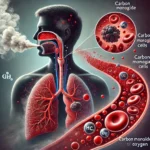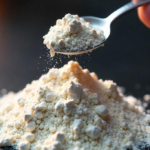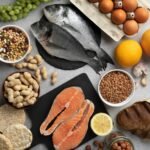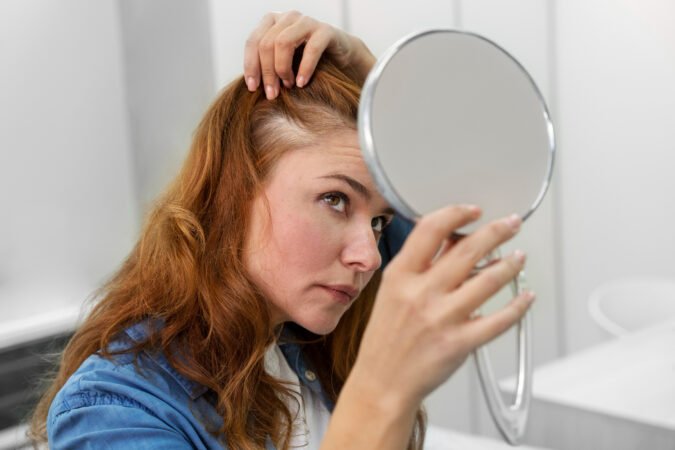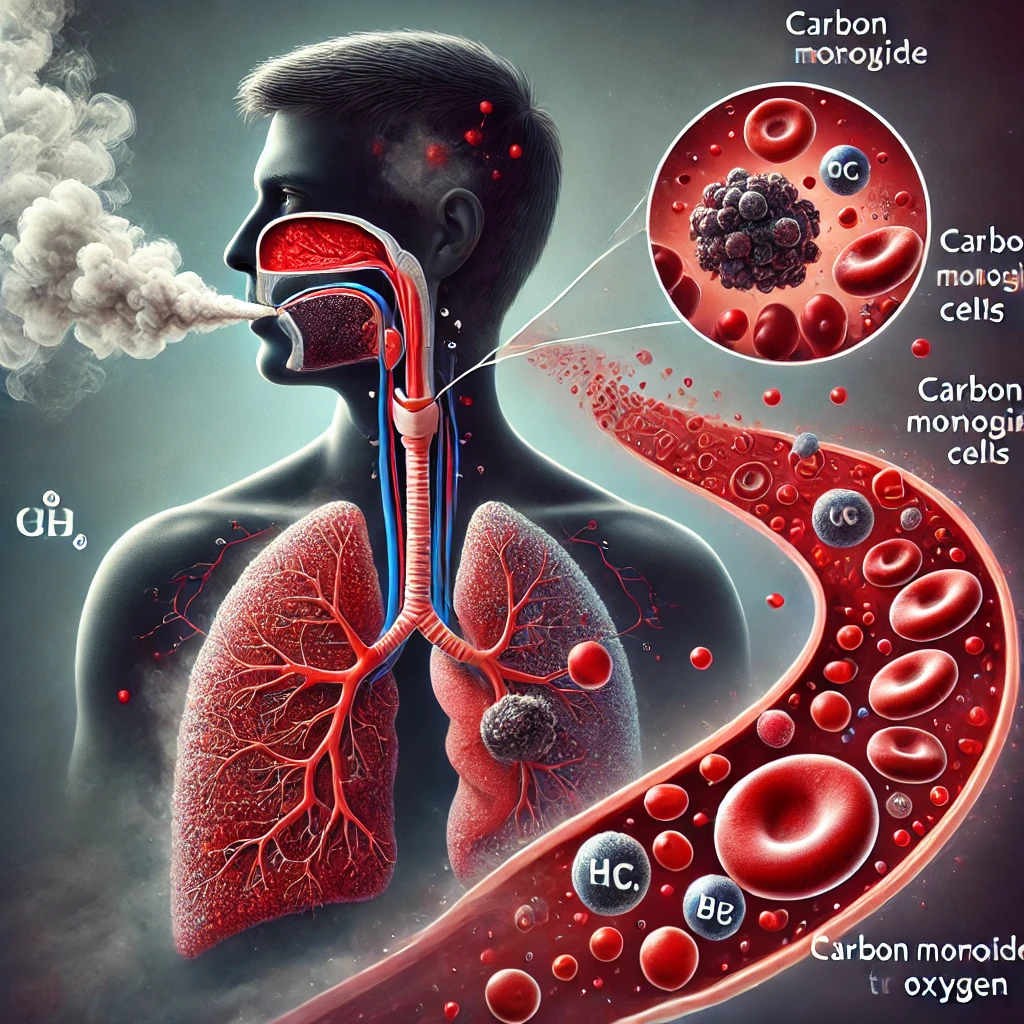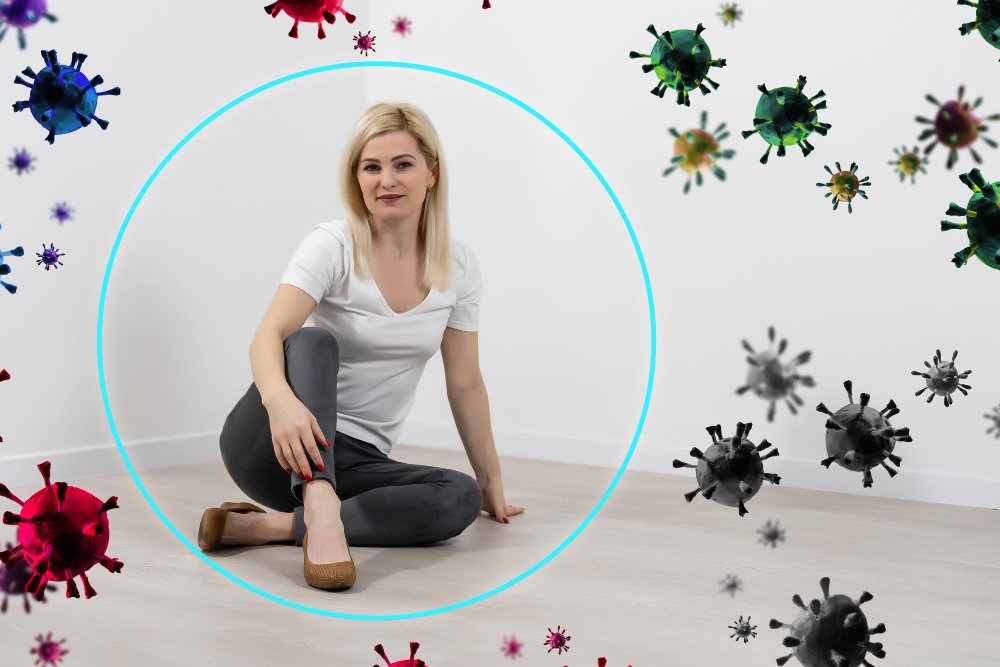Nourishing Your Locks : The Essential Guide to Nutrients for Combating Hair Fall
Hair fall is a common concern affecting millions of people worldwide. While some hair shedding is normal, excessive hair loss can be distressing and may indicate underlying health issues. One crucial factor in maintaining healthy hair is proper nutrition. This blog explores the intricate relationship between hair fall and nutrients, providing insights into how a well-balanced diet can help promote hair growth and reduce hair loss.
The Hair Growth Cycle:
Before delving into the role of nutrients in hair health, it’s essential to understand the hair growth cycle. Hair growth occurs in three main phases:
- Anagen (Growth Phase): This phase can last 2-7 years, during which hair actively grows.
- Catagen (Transition Phase): A brief 2-3 week period where hair growth slows and follicles shrink.
- Telogen (Resting Phase): Lasting about 3 months, old hairs are shed to make way for new growth.
Understanding this cycle is crucial as nutrient deficiencies can disrupt it, leading to increased hair fall (Sharma et al., 2018).
Key Nutrients for Hair Health:
- Protein:
Hair is primarily composed of a protein called keratin. Adequate protein intake is crucial for hair growth and strength. A study by Guo and Katta (2017) found that protein malnutrition can lead to hair thinning and loss.
Sources: Lean meats, fish, eggs, legumes, and dairy products.
- Iron:
Iron deficiency is a leading cause of hair loss, especially in women. Iron is essential for producing hemoglobin, which carries oxygen to hair follicles. Research by Trost et al. (2006) showed that iron deficiency could disrupt the hair growth cycle.
Sources: Red meat, spinach, lentils, and fortified cereals.
- Vitamin C:
This antioxidant vitamin aids in iron absorption and collagen production, both crucial for hair health. A study by Trüeb (2009) highlighted the importance of vitamin C in protecting hair follicles from oxidative stress.
Sources: Citrus fruits, berries, bell peppers, and broccoli.
- Biotin (Vitamin B7):
Biotin deficiency has been linked to hair loss. While its effectiveness as a hair growth supplement is debated, maintaining adequate biotin levels is important for overall hair health (Patel et al., 2017).
Sources: Eggs, nuts, seeds, and sweet potatoes.
- Vitamin D:
Low vitamin D levels have been associated with hair loss conditions like alopecia areata. A study by Gerkowicz et al. (2017) suggested that vitamin D supplementation might help in treating hair loss.
Sources: Sunlight exposure, fatty fish, egg yolks, and fortified foods.
- Zinc:
Zinc plays a crucial role in protein synthesis and cell division, processes essential for hair growth. Zinc deficiency can lead to hair loss and a dry, flaky scalp (Kil et al., 2013).
Sources: Oysters, beef, pumpkin seeds, and lentils.
- Omega-3 Fatty Acids:
These essential fatty acids support scalp health and may help reduce inflammation that can lead to hair loss. A study by Le Floc’h et al. (2015) found that omega-3 supplementation improved hair density in women with female pattern hair loss.
Sources: Fatty fish, walnuts, chia seeds, and flaxseeds.
- Vitamin E:
This antioxidant vitamin helps protect hair follicles from oxidative stress. A study by Beoy et al. (2010) showed that vitamin E supplementation increased hair count in individuals with hair loss.
Sources: Almonds, sunflower seeds, avocados, and spinach.
The Impact of Nutrient Deficiencies on Hair Fall:
Nutrient deficiencies can significantly impact hair health and lead to increased hair fall. Here’s how some key nutrient deficiencies affect hair:
- Protein Deficiency: When the body lacks protein, it may shut down hair growth to conserve protein for more essential bodily functions. This can result in brittle, weak hair prone to breakage and shedding (Guo and Katta, 2017).
- Iron Deficiency: Iron deficiency anemia can disrupt the hair growth cycle, pushing more hair follicles into the telogen (resting) phase. This leads to increased shedding and thinner hair overall (Trost et al., 2006).
- Vitamin D Deficiency: Low vitamin D levels have been linked to various hair loss conditions, including alopecia areata and female pattern hair loss. Vitamin D is thought to play a role in hair follicle cycling and immune regulation (Gerkowicz et al., 2017).
- Zinc Deficiency: Zinc is crucial for protein synthesis and cell division, both essential for hair growth. A lack of zinc can lead to hair shaft abnormalities and increased hair shedding (Kil et al., 2013).
- Biotin Deficiency: While rare, biotin deficiency can cause hair thinning and loss. Biotin is essential for keratin production, the primary protein in hair (Patel et al., 2017).
Dietary Strategies to Combat Hair Fall:
Incorporating a balanced diet rich in hair-healthy nutrients is key to preventing nutrient-related hair fall. Here are some dietary strategies:
- Ensure Adequate Protein Intake: Aim for 0.8 grams of protein per kilogram of body weight daily. Include lean meats, fish, eggs, and plant-based proteins like legumes and quinoa in your diet.
- Boost Iron Absorption: Combine iron-rich foods with vitamin C sources to enhance absorption. For example, pair spinach with bell peppers or lentils with tomatoes.
- Include Omega-3 Rich Foods: Aim for at least two servings of fatty fish per week, or consider plant-based sources like walnuts and chia seeds for vegetarians and vegans.
- Incorporate Zinc-Rich Foods: Include oysters, beef, pumpkin seeds, or fortified cereals in your diet to ensure adequate zinc intake.
- Prioritize Vitamin D: If sunlight exposure is limited, consider vitamin D-rich foods or supplements after consulting with a healthcare provider.
- Don’t Forget B-Vitamins: Include a variety of B-vitamin sources like whole grains, leafy greens, and fortified foods to support overall hair health.
Supplementation and Hair Health:
While a balanced diet should be the primary source of nutrients, supplementation may be beneficial in cases of deficiency. However, it’s crucial to consult with a healthcare provider before starting any supplement regimen. Over-supplementation can be harmful and may not necessarily improve hair health if deficiencies are not present.
A study by Glynis (2012) found that women with thinning hair who took a specific oral supplement containing vitamins and minerals experienced significant improvement in hair growth. However, more research is needed to establish the effectiveness of hair supplements for the general population.
Lifestyle Factors and Hair Health:
While nutrition plays a crucial role in hair health, other lifestyle factors can also impact hair fall:
- Stress Management: Chronic stress can disrupt the hair growth cycle. Practices like meditation, yoga, or regular exercise can help manage stress levels (Peters et al., 2017).
- Gentle Hair Care: Avoid harsh treatments, excessive heat styling, and tight hairstyles that can damage hair and lead to breakage.
- Hormonal Balance: Hormonal imbalances, such as those seen in thyroid disorders or polycystic ovary syndrome (PCOS), can contribute to hair loss. Regular check-ups can help identify and address these issues.
- Adequate Sleep: Quality sleep is essential for overall health, including hair growth. Aim for 7-9 hours of sleep per night.
Maintaining healthy hair requires a holistic approach that includes proper nutrition, stress management, and gentle hair care practices. By ensuring adequate intake of key nutrients like protein, iron, vitamins, and minerals, you can support optimal hair growth and reduce hair fall. Remember that significant hair loss can sometimes indicate underlying health issues, so it’s important to consult with a healthcare provider if you’re experiencing excessive hair fall.
Written by : Farokh Shabbir
While nutrition plays a crucial role in hair health, it’s just one piece of the puzzle. A balanced lifestyle that includes stress management, proper hair care, and attention to overall health is key to maintaining luscious, healthy locks. By nourishing your body from the inside out, you can help combat hair fall and promote stronger, more vibrant hair.

